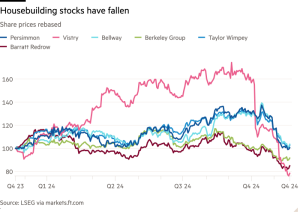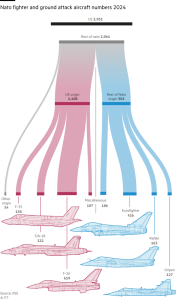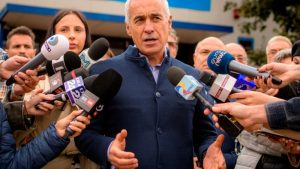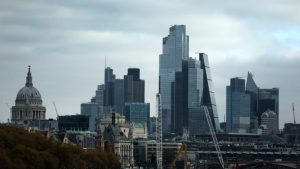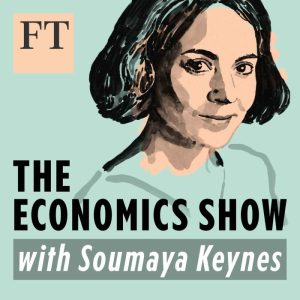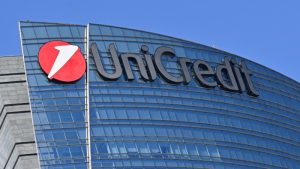Brussels rule of law chief warns against EU ‘nannying’ citizens
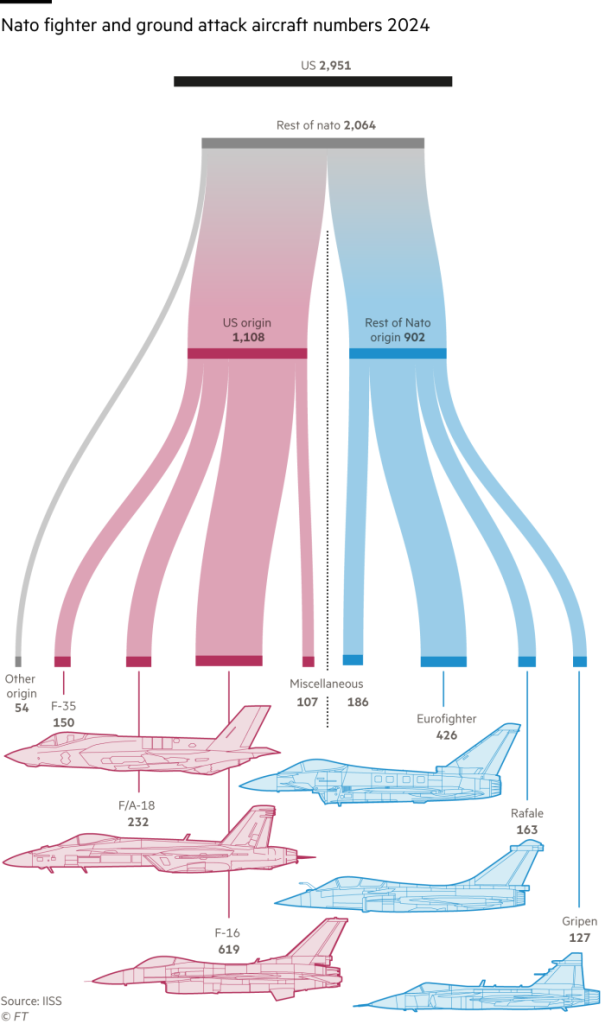
This article is an on-site version of our Europe Express newsletter. Premium subscribers can sign up here to get the newsletter delivered every weekday and Saturday morning. Standard subscribers can upgrade to Premium here, or explore all FT newsletters
Good morning. News to start: France has dropped its opposition to non-EU defence companies participating in an EU initiative to pump money into the European defence industry, according to officials involved in talks over the proposal.
Today, the EU’s outgoing rule of law tsar tells our competition correspondent that Brussels mustn’t “nanny” EU citizens and treat them like “little children”. And our climate correspondent reports on the EU’s less-than-shiny reputation when it comes to efforts to cut plastics pollution.
Parting gift
Outgoing European Commission vice-president Věra Jourová has warned against the EU becoming a “nanny” to its citizens and overreaching its regulatory powers to protect them, writes Javier Espinoza.
Context: Brussels is regularly accused of interventionism when it comes to consumer protection. The commission has for instance proposed extending smoking bans to certain outdoor areas, which critics decried as the latest example of regulators meddling where they shouldn’t.
Jourová, who during her term was in charge of the rule of law, thinks there should be a “proper division of competences” between Brussels and the member states.
“As the protector of the rule of law, I have also to protect the rule of law on a European level and the checks and balances,” Jourová told the FT in an interview. “So I would really recommend sticking with the [Lisbon] treaty,” she added, referencing one of the EU’s foundational texts.
Consumer policy is a particular area where she says she had to push back against Brussels extending its enforcement powers. “It was my permanent struggle in consumer policy that we should not try to protect the consumers in an extreme way. We should trust them also,” she said.
“These efforts of being the nanny turn against the consumers,” she said. “People don’t understand when the EU is regulating things which might be not regulated at all, or [should be regulated] at the national level or even at the local level.”
One example she gives is fighting online shopping fraud. “Should it be directly the job for the commission? I will always shout no, there is nothing about it in the treaty. Let’s keep our role to be the legislator and be the guardian of the treaty,” Jourová said.
“Let’s not try to protect the consumers as if they are little children.”
Chart du jour: Big brother

Can Europe defend itself with less American help? The continent will have to spend more as president-elect Donald Trump refocuses elsewhere. But replacing US military heft will not be easy — or fast. Read our deep dive.
Plastic fantastic
Negotiations for a global treaty to cut plastic pollution start today — but the picture is not pretty for European plastics producers, writes Alice Hancock.
New data from the chemicals watchdog ChemSec shows that for the past five years European plastics producers “have lagged the rest of the world on their toxic footprint and shown zero improvement”.
Context: Over the past two years countries have wrangled over the shape of a global plastics agreement. Delegates meeting in Busan in South Korea are aiming to refine options for reducing plastic waste down to a coherent treaty that more than 170 nations can sign.
The EU consistently presents itself as an ambitious negotiator on climate and environmental matters. EU negotiators were among those at the COP29 climate conference in Baku that ended yesterday advocating for advancement on cutting fossil fuels (even though the bloc also came under heavy fire for failing to stump up more cash to support developing countries hit by the worst impacts of climate change).
But in Busan, the bloc’s industrial position might undermine that position.
ChemSec, a non-profit backed by the Swedish government that is considered an industry benchmark, found in its latest annual index that publicly listed European plastics manufacturers had more hazardous chemicals in their portfolios than in other regions of the world and had not improved that ratio since 2020.
“European plastics companies are presenting themselves as investing in greener chemistry while doing little to lower their existing hazard profile,” said Sonja Haider, head of sustainable finance at ChemSec.
Plastics Europe, the industry body, said: “The EU has the most extensive and stringent regulatory framework in place to safeguard consumer safety, and before a plastic product ever reaches a consumer our industry complies with all science-based regulations for chemicals and products.”
What to watch today
-
European parliament president Roberta Metsola meets with the commission president Ursula von der Leyen in Strasbourg ahead of opening the chamber’s plenary session.
-
Nato secretary-general Mark Rutte visits Turkey, meets President Recep Tayyip Erdoğan.
-
German defence minister Boris Pistorius hosts counterparts from France, Poland, Britain and Italy for talks in Berlin.
Now read these
Recommended newsletters for you
Trade Secrets — A must-read on the changing face of international trade and globalisation. Sign up here
Swamp Notes — Expert insight on the intersection of money and power in US politics. Sign up here
Are you enjoying Europe Express? Sign up here to have it delivered straight to your inbox every workday at 7am CET and on Saturdays at noon CET. Do tell us what you think, we love to hear from you: [email protected]. Keep up with the latest European stories @FT Europe
#Brussels #rule #law #chief #warns #nannying #citizens
